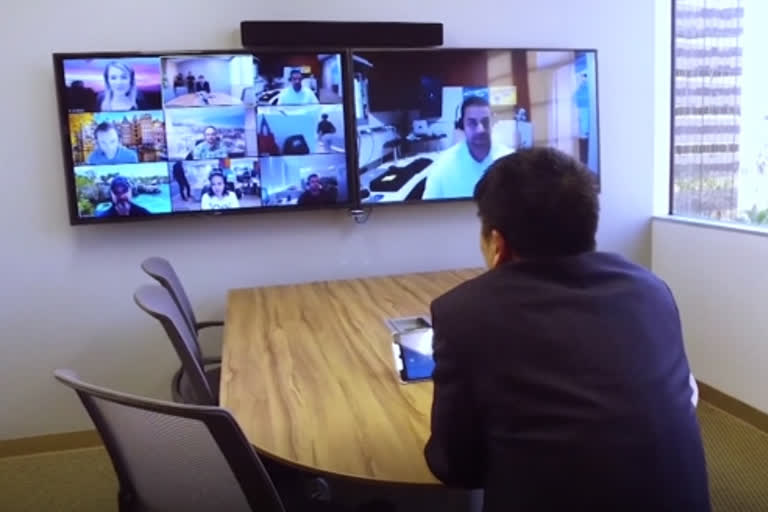California: As businesses, schools, churches and others turn to video conference platforms to stay connected amid the global coronavirus pandemic, many have reported being attacked by uninvited guests.
The disruptions, dubbed "Zoom-bombing," have included racist, homophobic and anti-Semitic messages and have drawn the scrutiny of the FBI and other law enforcement agencies.
Experts say some of the Zoom-bombing incidents can be attributed to internet trolls who operate without malicious intent. However, extremists have already seized on the coronavirus pandemic as a vehicle to spread their hate and conspiracies.
In response to criticism, Zoom has clarified its privacy policy. But some say the company isn't doing enough to protect users' safety.
As the Rev. Laura Everett delivered a sermon via Zoom for Boston's First Baptist Church, users who had seen the church service advertised entered the video conferencing session and shouted homophobic and racist slurs. Everett said she had tweeted the link to the sermon because she wanted "the doors of the church to be open to every weary soul who is looking for a word of comfort."
"To be met with racist and hateful anti-LGBT slurs was profoundly distressing," said Everett, Executive Director of the Massachusetts Council of Churches. "Zoom is the business that is providing the service that I am paying for. And therefore, it is their primary responsibility to make sure that the children, the elders, the vulnerable communities that are using their product are not being subjected to hate speech."
In a statement, the company told The Associated Press it takes the security of meetings seriously and encourages users to report any incidents directly to Zoom. The company suggested that people hosting large, public meetings confirm that they are the only ones who can share their screen and use features like mute controls.
Also Read: Babies born to COVID-19 mothers in Peru test negative for virus
Zoom recently updated the default screen-sharing settings to require use of passwords and "waiting rooms" that allow the host to control who enters the video call.
"It's our responsibility to make sure that our product can be set up so that those things cannot happen. Janine Pelosi, Zoom's chief marketing officer. "And that's why we made the choice to put those passwords and waiting rooms on by default."
Steven Weber, faculty director for UC Berkeley's Center for Long-Term Cybersecurity, said Zoom did the right thing by changing its default settings to prioritize user privacy and security.
"Zoom's obsessiveness about speed and performance is what makes it so wonderful, but it's also going to create some problems," Weber said. "So I think it's totally fine to use it like it is to use any other software. But be aware that it's not going to be perfect and we'll have to fix problems as we go."



